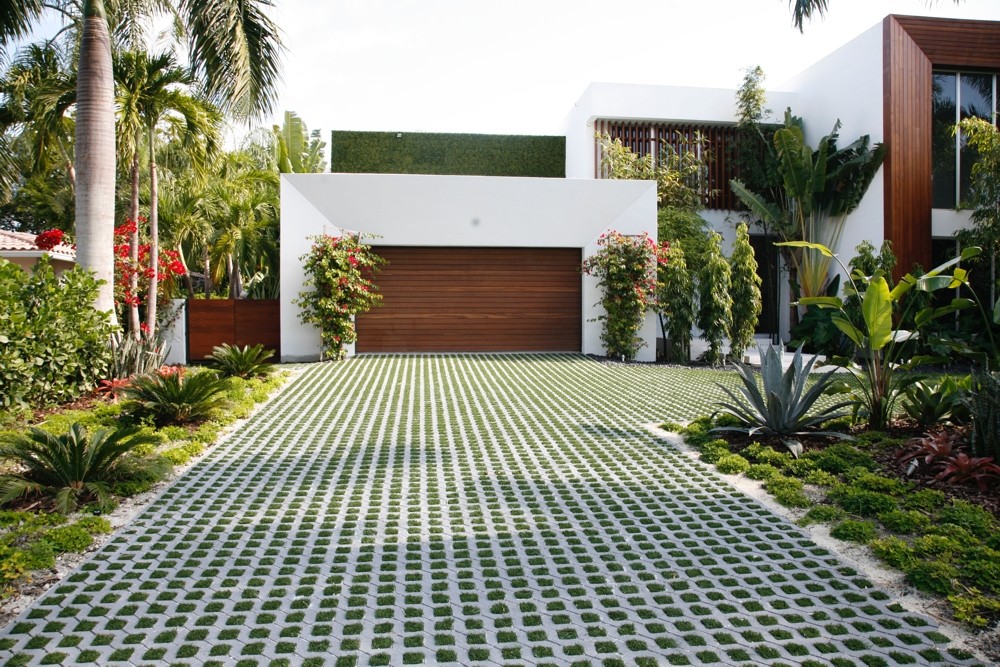Grass blocks are an essential component in landscaping and gardening, serving both functional and aesthetic purposes. As more homeowners seek sustainable and eco-friendly solutions for their outdoor spaces, grass blocks have gained popularity for their versatility and ease of installation. In this comprehensive guide, we will explore the definition, benefits, and various applications of grass blocks, as well as tips for maintenance and installation.
This article aims to provide you with valuable insights into grass blocks, ensuring you have all the information you need to make informed decisions for your landscaping projects. We will delve into the different types of grass blocks available, their environmental benefits, and how they can enhance the beauty of your yard. Whether you are a seasoned gardener or a novice landscaper, this guide is tailored to help you understand everything you need to know about grass blocks.
By the end of this article, you'll not only grasp the concept of grass blocks but also appreciate their significance in modern landscaping. Let's embark on this journey to discover how grass blocks can transform your outdoor spaces!
Table of Contents
- 1. Definition of Grass Blocks
- 2. Types of Grass Blocks
- 3. Benefits of Using Grass Blocks
- 4. Applications of Grass Blocks
- 5. How to Install Grass Blocks
- 6. Maintenance Tips for Grass Blocks
- 7. Environmental Impact of Grass Blocks
- 8. Conclusion
1. Definition of Grass Blocks
Grass blocks are modular units designed to support grass growth while providing a stable surface for vehicles and pedestrians. Typically made from concrete or plastic, grass blocks feature a grid-like structure that allows soil and grass to grow through them. This design not only enhances the aesthetics of an area but also helps in reducing soil erosion and managing stormwater runoff.
2. Types of Grass Blocks
There are several types of grass blocks available in the market today, each suited for different applications:
- Concrete Grass Blocks: These are the most common type and are known for their durability and strength. They are often used in driveways, parking lots, and pathways.
- Plastic Grass Pavers: Made from recycled materials, plastic grass pavers are lightweight and easy to install. They are ideal for residential gardens and light-duty applications.
- Grass Grid Systems: These systems are designed for larger areas and provide a more extensive network for grass growth. They are often used in commercial settings.
3. Benefits of Using Grass Blocks
Grass blocks offer numerous advantages that make them an excellent choice for landscaping:
- Environmental Benefits: Grass blocks help in absorbing rainwater, reducing runoff, and promoting groundwater recharge.
- Enhanced Aesthetics: They provide a natural look to outdoor spaces while allowing for easy maintenance of lawns.
- Durability: Grass blocks are designed to withstand heavy loads, making them suitable for driveways and parking areas.
- Soil Stabilization: They help in preventing soil erosion and maintain the integrity of the landscape.
4. Applications of Grass Blocks
Grass blocks can be used in various settings, including:
- Residential Gardens: Ideal for walkways, patios, and driveways.
- Commercial Properties: Used in parking lots and outdoor event spaces.
- Public Spaces: Parks and recreational areas benefit from the durability and aesthetic appeal of grass blocks.
5. How to Install Grass Blocks
Installing grass blocks requires careful planning and execution. Here’s a step-by-step guide:
- Planning: Determine the area where you want to install grass blocks and measure it accurately.
- Preparation: Clear the area of debris, rocks, and vegetation. Level the ground as needed.
- Base Layer: Add a base layer of gravel or sand to provide drainage and stability.
- Placing Blocks: Lay the grass blocks in the desired pattern, ensuring they fit snugly together.
- Filling Gaps: Fill the gaps with soil and grass seed, or install sod for immediate greenery.
6. Maintenance Tips for Grass Blocks
Maintaining grass blocks is essential to ensure their longevity and effectiveness:
- Regular Mowing: Keep the grass trimmed to promote healthy growth.
- Weed Control: Remove weeds regularly to prevent them from competing with grass.
- Soil Aeration: Aerate the soil periodically to ensure proper drainage and root growth.
7. Environmental Impact of Grass Blocks
Grass blocks play a significant role in promoting sustainability in landscaping. They help in:
- Reducing Urban Heat: Grass blocks can help lower temperatures in urban areas by providing green spaces.
- Improving Air Quality: The grass helps in filtering pollutants and producing oxygen.
- Supporting Biodiversity: They create a habitat for various insects and wildlife.
8. Conclusion
In conclusion, grass blocks are a versatile and sustainable option for landscaping projects. They offer numerous benefits, including environmental advantages, aesthetic appeal, and durability. By understanding the different types, applications, and maintenance practices, you can make informed decisions when incorporating grass blocks into your outdoor spaces.
We encourage you to explore the possibilities of using grass blocks in your next landscaping project. If you have any questions or thoughts, feel free to leave a comment below or share this article with fellow gardening enthusiasts!
Thank you for reading, and we look forward to seeing you again for more insightful articles on landscaping and gardening!
Exploring The Talented Cast Of Descendants: A Comprehensive Guide
Unlocking The Secrets Of Infinity Combat Codes: A Comprehensive Guide
New Fortnite Season: What You Need To Know


